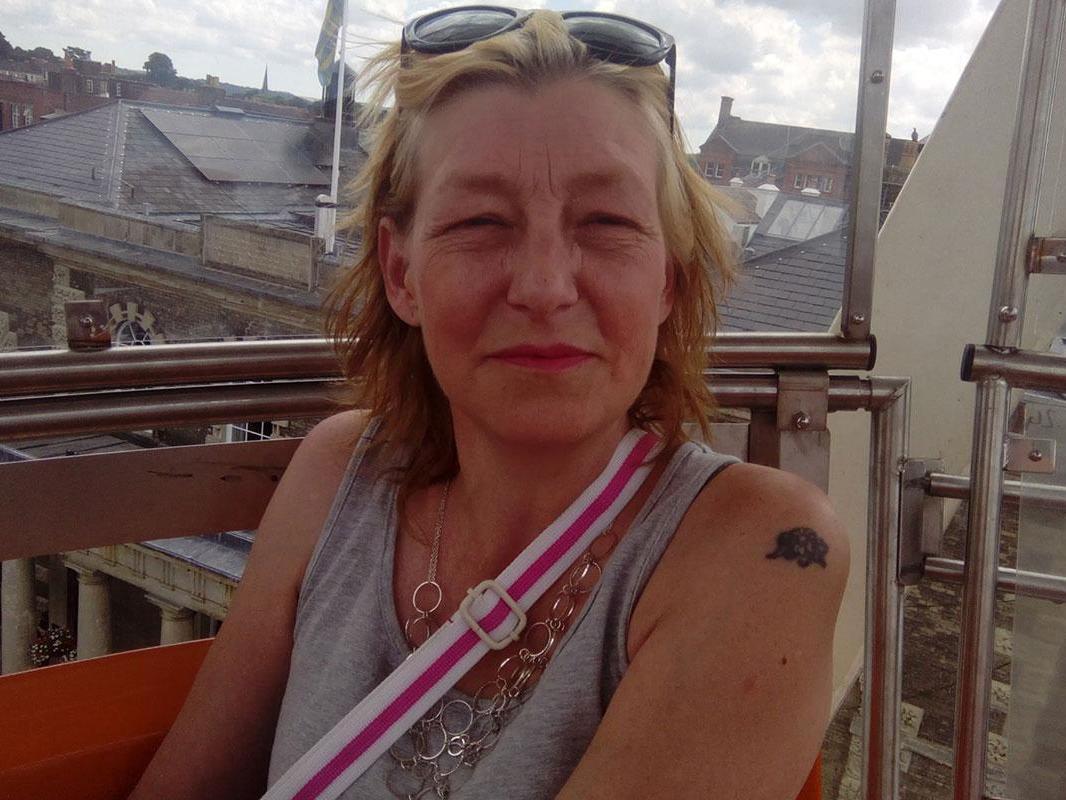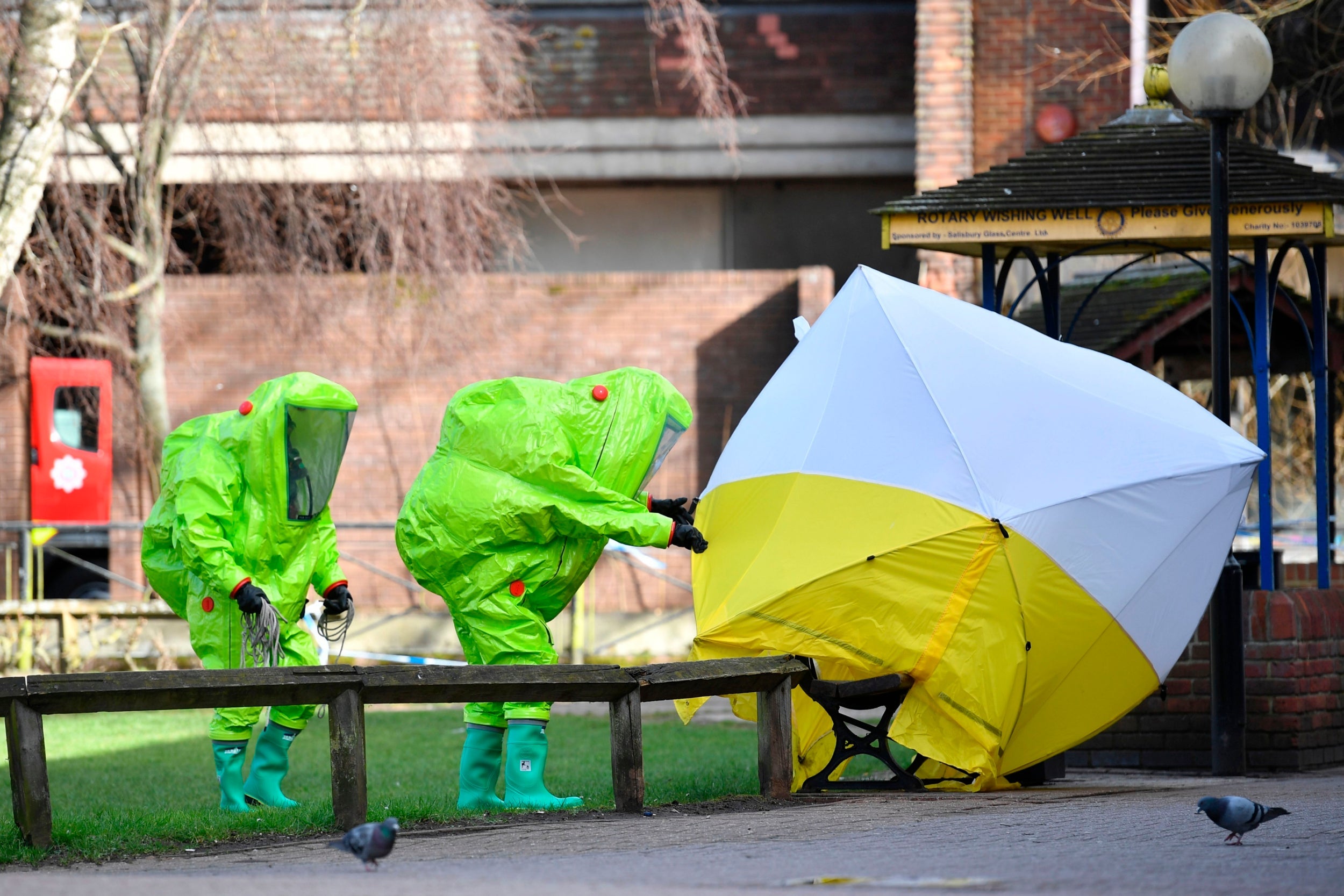Dawn Sturgess death: Inquest has power to investigate Russian state officials over Salisbury novichok attack, High Court rules
Judges say coroner could lawfully look at ‘officials so senior that they could be said to embody the Russian Federation itself’

An inquest into the death of novichok poisoning victim Dawn Sturgess has the power to investigate whether Russian agents and officials beyond two identified suspects were responsible, the High Court has ruled.
Two judges found that the senior coroner for Wiltshire made a “material error of law” by narrowing the scope of the inquest.
They quashed his decision, which had been backed by the home secretary in a legal battle against Ms Sturgess’ daughter.
Earlier this week, the Intelligence and Security Committee released its long-awaited Russia report, which accused the government and intelligence services of failing to protect the UK’s democratic processes and leaving Russian defectors “vulnerable”.
The senior coroner, David Ridley, said he would not consider whether any Russian agents, other than the two men accused of applying novichok to Sergei Skripal’s door, were responsible for the death of Ms Sturgess.
Her daughter launched a legal challenge against his ruling. The coroner had claimed that it would be unlawful under the Coroners and Justice Act 2009 to consider whether members of the Russian state were responsible for the death of Ms Sturgess.
But Lord Justice Bean and Mr Justice Lewis said there would be no violation “if the inquest were to investigate who was responsible for the death of Ms Sturgess – whether ‘Alexander Petrov’ and ‘Ruslan Boshirov’, their alleged co-conspirators, directors or employers, or officials so senior that they could be said to embody the Russian Federation itself”.
They said the section cited by the senior coroner was “not a valid reason for limiting the scope of the investigation in the manner suggested”.
Mr Ridley described Ms Sturgess as “collateral damage” from the assassination attempt on Mr Skripal because she had come into contact by chance with the weapon that was used.

But the High Court judgment said that that description was not “sufficient basis for excluding evidence of the activities of every Russian state actor other than Mr Petrov and Mr Boshirov – including the ‘third man’ allegedly operating in London – still less for excluding evidence about the source of the novichok”.
It added: “There is acute and obvious public concern not merely at the prima facie evidence that an attempt was made on British soil by Russian agents to assassinate Mr Skripal and that it led to the death of Ms Sturgess, but also at the fact that it involved the use of a prohibited nerve agent exposing the population of Salisbury and Amesbury to lethal risk.
“There has been – and to be realistic, there will be – no criminal trial in which the details of how this appalling event came to occur can be publicly examined.”
The judgment noted that the suspects accused are either inside Russia or under its control, and that the nation also holds “key evidence” on the development of novichok.
Lord Justice Bean and Mr Justice Lewis quashed the senior coroner’s decision on the first ground of the legal challenge, but dismissed a second ground.
Lawyers for Ms Sturgess’s daughter argued that article two of the European Convention on Human Rights – the right to life – required the coroner to investigate the issue of Russian state responsibility and the source of the novichok.
But the High Court said human rights law did not “oblige” the coroner to investigate those matters.
They referred the case back to Mr Ridley for him to redraw the scope of the inquest, ruling: “The claim for judicial review must succeed, the ruling must be quashed and the case remitted to the senior coroner.”
Sir James Eadie QC, representing the home secretary, had said the judges should dismiss the application. He argued that the coroner was entitled to reach the decisions he had reached regarding the scope of the inquest.
Ms Sturgess died aged 44 in July 2018 after being poisoned with novichok that had been concealed inside a counterfeit perfume bottle.
Police believe her partner, Charlie Rowley, accidentally recovered the bottle used to apply the nerve agent to Mr Skripal’s front door months before.
Mr Skripal, a former double agent who passed Russian military intelligence secrets to MI6, was poisoned on 4 March that year by two alleged Russian agents.

He and his daughter, Yulia, fell seriously ill but survived the assassination attempt, making Ms Sturgess the only victim killed.
Representing Ms Sturgess’s daughter, Michael Mansfield QC said the question of who was responsible for the use of novichok was a matter of “almost unparalleled public concern”.
At a hearing on 14 July, he argued that the inquest should investigate “credible allegations” that other Russian agents were involved or “key questions” about how the operation was arranged.
Moscow denies involvement, but Theresa May, then the prime minister, said the attack on Mr Skripal had “almost certainly” been approved by the Russian government.
The two main suspects – whose real names are Anatoliy Chepiga and Alexander Mishkin – were charged with launching the attack on Mr Skripal in September 2018, but had flown back to Russia immediately after the attempted assassination.
Both men are subject to Interpol red notices and European Arrest Warrants, but the prospect of them leaving Russia or being extradited appears slim as the Kremlin continues to deny any involvement.
Internet researchers Bellingcat later identified a third Russian military intelligence officer, Denis Sergeev, who arrived in Britain hours before the two would-be assassins and is alleged to have commanded them from London.
Join our commenting forum
Join thought-provoking conversations, follow other Independent readers and see their replies
Comments
Bookmark popover
Removed from bookmarks